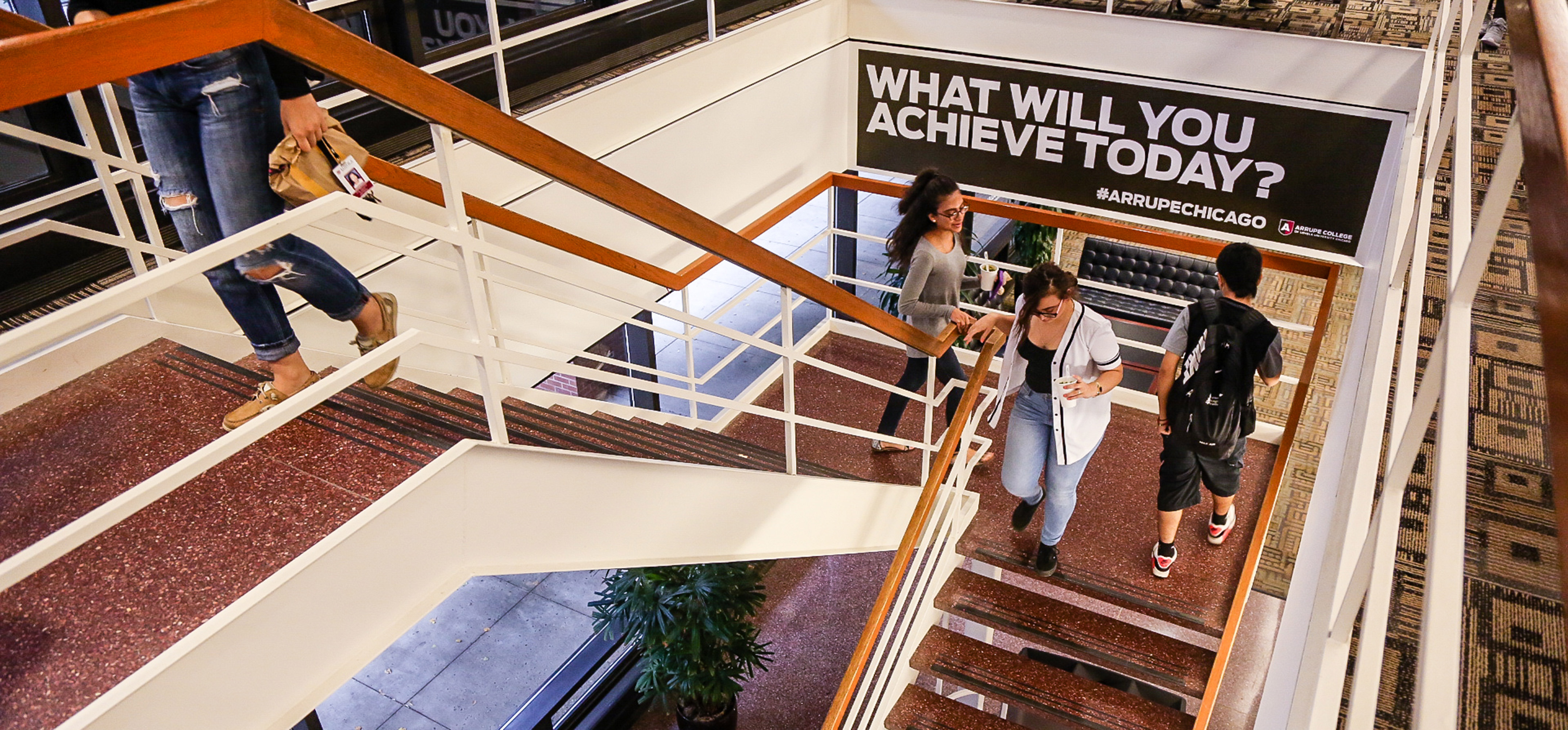Sustainability In the classroom
Across the curriculum
From the sciences to the humanities, all majors at Loyola get an education in advancing sustainability
By Maura Sullivan Hill

Whether it’s a journalism major with dreams of being a TV anchor, a history major with plans to go to law school, or an Arrupe student eyeing a business career, students at Loyola tend to have one thing in common when it comes to their education: sustainability.
Regardless of major, all Loyola students have a responsibility to be engaged citizens who are attentive to sustainability and care for the environment. The University even has a sustainability mission statement, which is rooted in the Jesuit tradition of social justice and service to humanity, and demonstrates a commitment to “considering social, economic, and environmental impacts.”
While Loyola’s Institute for Environmental Sustainability (IES) offers six majors, three minors, and three dual-degree programs for students who want to focus their studies in that area, sustainability themes can be found across the curriculum and in classrooms on every campus.
Alanah Fitch, professor of chemistry and founder of Loyola’s first Environmental Studies/Sciences program, said that this integration is rooted in Loyola’s Jesuit character. “It is important to integrate sustainability into the classroom in all academic areas because of the Jesuit mantra to learn, apply, and integrate into mind and soul,” Fitch said.
So it is fitting that care for the Earth, a priority for both the Jesuits and Loyola, should be addressed in classes beyond IES. An in fact more than 1,300 courses at the University include sustainability learning objectives. Here are just a few:
U.S. Environmental History • College of Arts and Sciences •
Ben Johnson, associate professor of history
U.S. Environmental History surveys the history of the environmental movement in the United States, from pre-Columbian times to the present. Plants, animals, and diseases take their place as historical forces alongside humans, culture, and social institutions as students consider how the inhabitants of this continent were shaped by nature and shaped their own very different environments.
“Teaching environmental history at Loyola is one of the great pleasures of my career. Students rise to the challenge of adding non-human actors like diseases, animals, and climate to their understanding of how the world we live in was created,” said Ben Johnson. “They also realize that what is now called environmentalism–the effort to fix a mutually damaging relationship between humans and the rest of creation–is much older and more complicated than they generally assume. I’ve really enjoyed the chance to help students develop a humanistic and self-critical approach to issues often treated only in science classes.”
Environmental Journalism • School of Communication •
Connie Fletcher, associate professor of communication
The Environmental Journalism course enables students from all majors to get the word out about current environmental issues and sustainability best practices. It is a writing-intensive course that teaches how to write about the environment for a variety of platforms, including print, broadcast, and multimedia. The course includes discussion with Loyola scientists on how to translate scientific knowledge for the wider public through journalism, and students also learn the history and ethics of environmental reporting.
“I can’t think of a better place than Loyola to teach this class," said Connie Fletcher. "The IES building itself is a symbol of LUC’s commitment to sustainability as social justice. Students can cover events like the Rogers Park Farmers Market and Hunger Week in the fall, and the Climate Change Conference and Water Week in the spring.
“We can tap experts in both the sciences and journalism to work with students on being clear, ethical communicators. This course gives Loyola students the tools to ‘seek the truth and report it’ about climate change and sustainability.”
Environmental Processes, Challenges, and Methods • Arrupe College •
Meghan Kelly, environmental science lecturer
This interdisciplinary science course examines contemporary environmental challenges as both scientific and social problems. These challenges are significant threats to the planet, including the loss of biodiversity, access to a stable supply of food and water for all populations, climate change, and the demands for energy and other resources. Students investigate possible responses to these issues and participate in a laboratory component that analyze soil, water, and atmospheric samples.
“Students today will face significant environmental challenges at local and global scales during their lifetimes, and whether they become scientists or informed citizens, each of them will have an important role to play in rising to those challenges. My job is to help them figure out what that role will be and what they will need to be able to do to execute that role,” said Meghan Kelly. “Teaching this course is also making me a better environmental citizen. It’s much harder to ignore the effects of my own actions when I’m talking about them every day in class.”
Environmental Ethics • College of Arts and Sciences •
Paul Ott, philosophy lecturer
Environmental ethics is the philosophical study of the value of nature, the human-nature relationship, and the ethical questions that arise from these two issues. The question of nature’s value is central to the course—on one side of the spectrum are those who regard humans as the only or highest entity of ethical worth, while the other side ascribes strong ethical value to animals, living things, ecosystems, and nature as a whole.
Ott’s course also includes an engaged learning requirement: 20 hours of work at an environmental activity outside of class. Students volunteer at nature restoration sites, parks and forest preserves, urban farms, and environmental activist organizations.
“This class showed me that experiences in nature bring about your environmental awareness, and when you are aware of the environment, then you can start fostering that environmental ethic and realizing the changes that need to be made in your own lifestyle to be more sustainable," said Olivia Urbanski (BA '18), a recent graduate who double majored in environmental studies and international studies. "People need to experience something in nature to care for it—when you get to feel and experience nature, that makes it so much more meaningful.”
![]()






